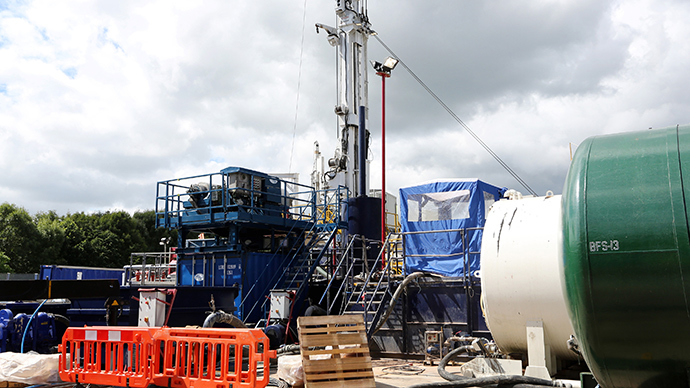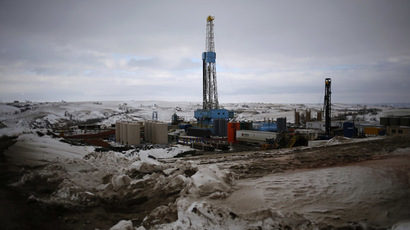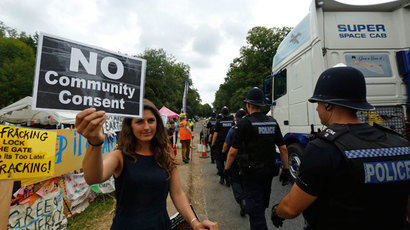National first: Colorado cracks down on methane fracking emissions

Regulators in Colorado have sanctioned massive controls on oil and natural gas operation emissions, making it the first US state to do so. A broad coalition agreed on implementing measures to counteract deteriorating smog.
Three of Colorado’s largest oil and gas producers, Noble Energy, Encana, and Anadarko Petroleum joined forces with the state’s Environmental Defense Fund to develop the regulatory measures which were approved on Sunday by the Colorado Air Quality Control Commission. The move would fix continued leaks from both tanks and pipes, including those from methane.
“We've got this simmering battle between the oil and gas industry and neighborhoods throughout the state that are being faced with development. That degree of acrimony is pushing the industry and policy makers to look for ways to get some wins,” the defense fund's Rocky Mountain regional director, Dan Grossman, told Bloomberg.
The Air Quality Control Commission approved the limitations 8-1, following five days of hearings. Well operators will have to abide by stricter leak detection. However, the commission also rejected a motion to reduce the requirement that operators check the majority of wells at least once a month for leaks.
“It's a tribute to the concerns that people have about these issues,” said the commission chair, John Loewy, after the vote. “We've had hundreds and hundreds of comments over these last months.”
Fracking operations release methane, a component of local pollution, which as a gas contributes to the greenhouse effect, and warms the planet.
Around two-thirds of methane released into the atmosphere worldwide is because of man-made sources. The Colorado vote was the first of its kind at a state level to regulate emissions specifically from fracking.
Authorities are being forced to confront the numerous problems associated with fracking, including noise pollution and health risks as a result, with the releases prompting Colorado’s governor, John Hickenlooper, to request that the energy companies and environmentalists convene to establish the rules.
At the beginning of January, it was reported that hundreds of complaints regarding pollution and water contamination have been filed in at least four states. Pennsylvania, Ohio, Texas, and West Virginia all had reported cases of contamination.
In December, a study by the University of Missouri and the United States Geological Survey found that chemicals used in fracking could severely disrupt the human body’s hormone production, potentially leading to increased risk of cancer, low fertility, and decreased sperm quality. The study also found that children would be particularly susceptible to risk.
Complicating the situation is that some regions are home to natural methane gas pollution, which makes it even harder to verify cases of drilling-related pollution. A 2011 Penn State study found that roughly 40 percent of all water well sites in Pennsylvania, tested before drilling occurred, failed to meet the drinking water standards mandated by the federal government.
In Colorado, North Dakota, Montana, Pennsylvania and Ohio, fracking is creeping ever-closer to communities, heightening the concerns.
Hydraulic fracking is a process of fracturing rock with the use of pressurized liquid consisting of water, sand and chemicals. It drills deep underground, forming fractures that force gas and other chemicals to be emitted.
While environmentalists have fully supported limitations on the practice, big energy companies have expressed concern over the measures: “These rules punish rural Colorado for smog created by Boulder and Denver,” Noble Energy development manager, Curtis Ruete, told Bloomberg by telephone.
Fracking in Colorado is likely to remain an issue. As a former geologist at an oil company, Governor Hickenlooper is accused of being too close to the industry.














